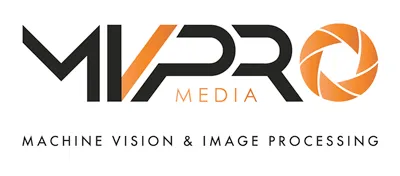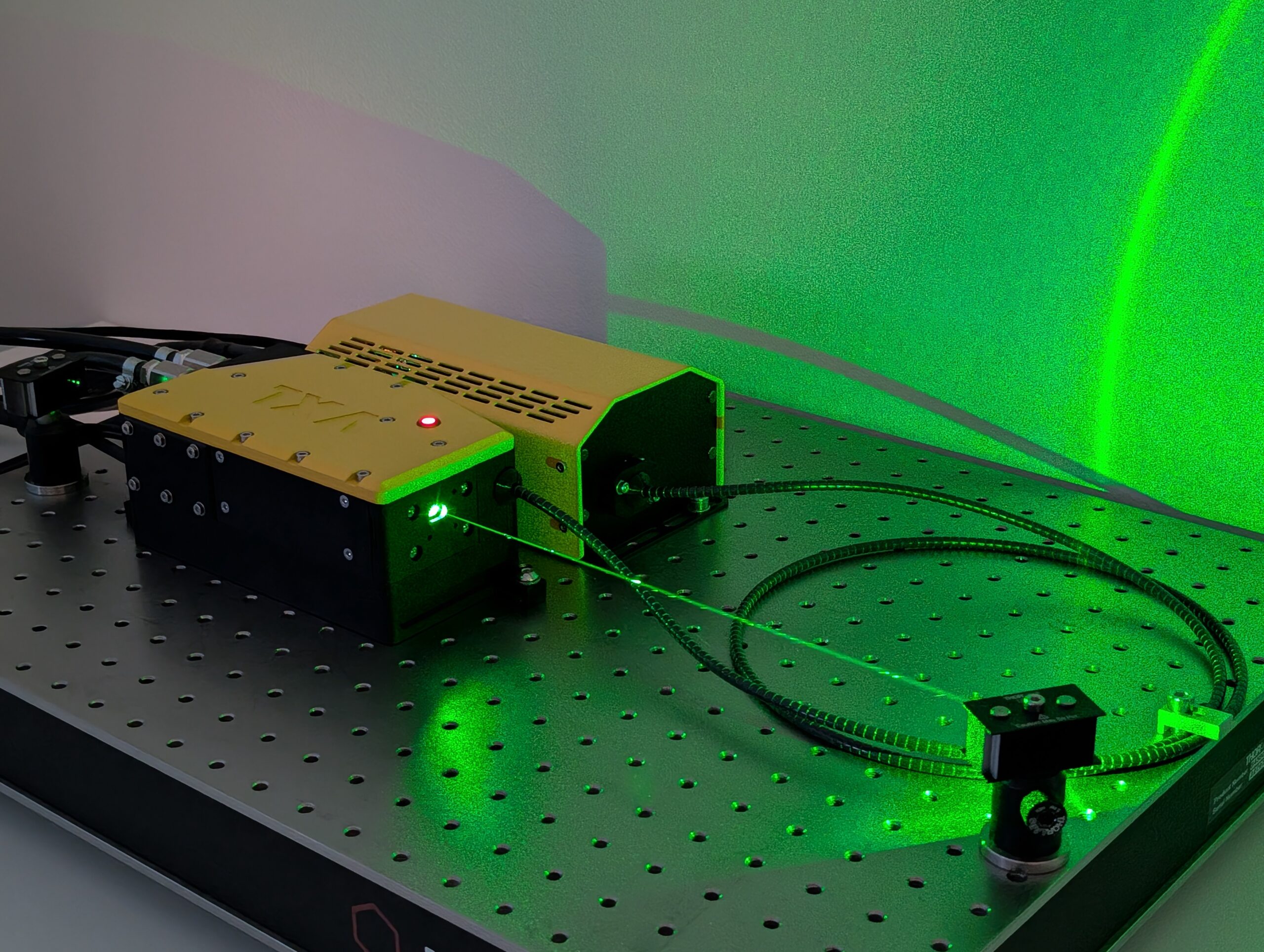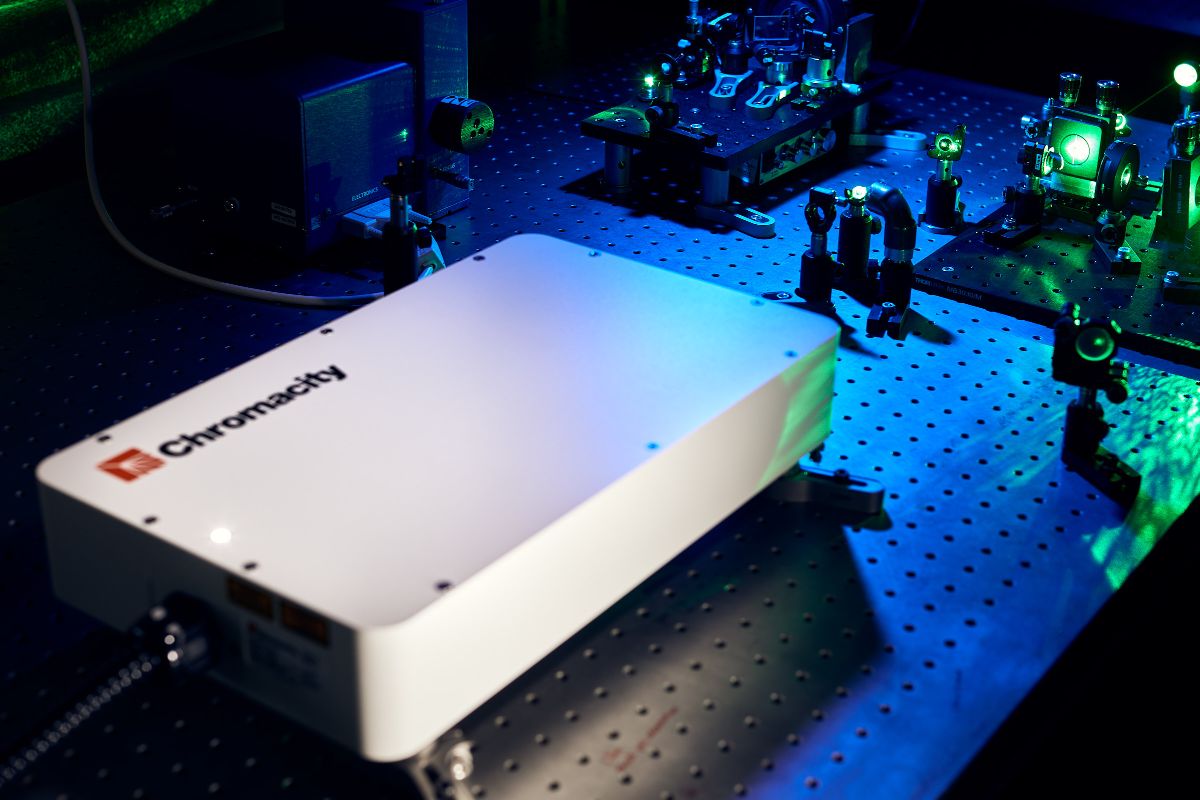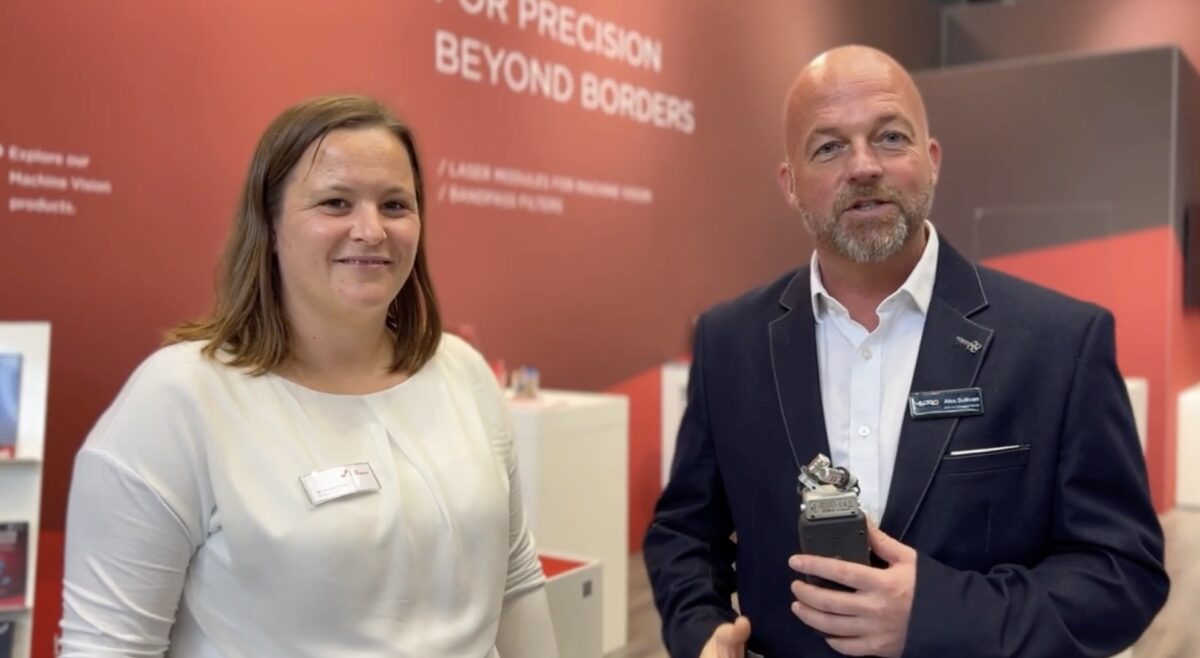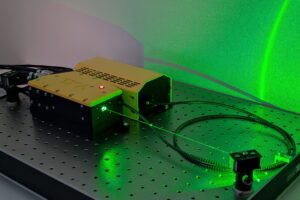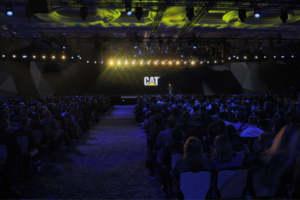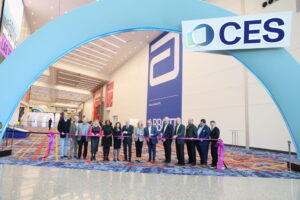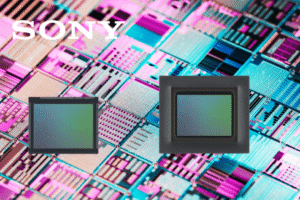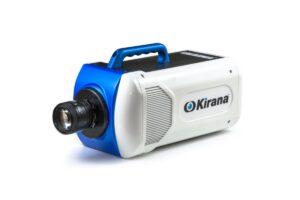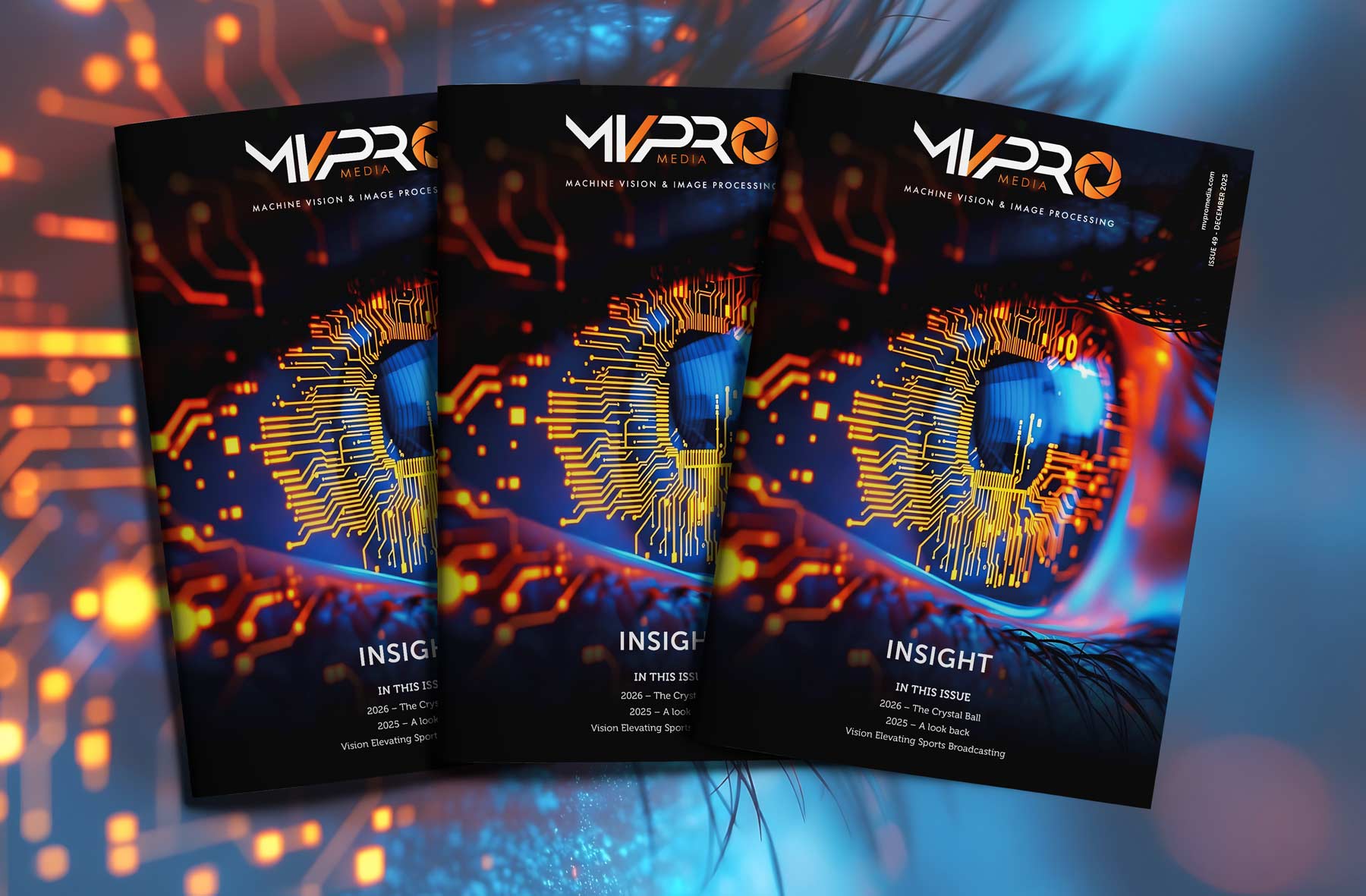Ultrafast laser systems from Chromacity Ltd are enabling breakthroughs in quantum-enhanced optical systems, which offer the promise of highly secure long distance optical communications.
The ability to generate and detect quantum states of light using entangled photons is a key research area in the development of next generation secure communications, both for guided wave and free-space systems. However, until recently long-distance secure quantum-enhanced communications via satellites have only been possible at night to avoid the blinding effect of background solar radiation.
An international group of researchers, led by the University of Glasgow’s James Watt School of Engineering have developed a new type of non-linear crystal made from lithium niobite. Directing short pulses of light from a Chromacity 1040 laser system through the crystal – the Glasgow-led team have created a new method of generating entangled photons further into the infrared (2.1 µm) which overcomes the solar radiation background problems enabling secure daytime quantum based optical communication for the first time.
Julian Hayes, CEO of Chromacity Ltd. said ““Two of our ultrafast laser systems have been involved in this exciting research. Our Chromacity 1040 is the workhorse that allows the generation of entangled photons at 2.1 µm, while our Chromacity Auskerry OPO has been used as a tool to help push the development of single photon detectors used to detect the entangled photons. We are thrilled to see how a mix of our technologies is clearly having a real impact on important innovative research”.
The full research paper from the University of Glasgow, titled ‘Two-photon Quantum Interference and Entanglement at 2.1 μm’, is available in Science Advances.
